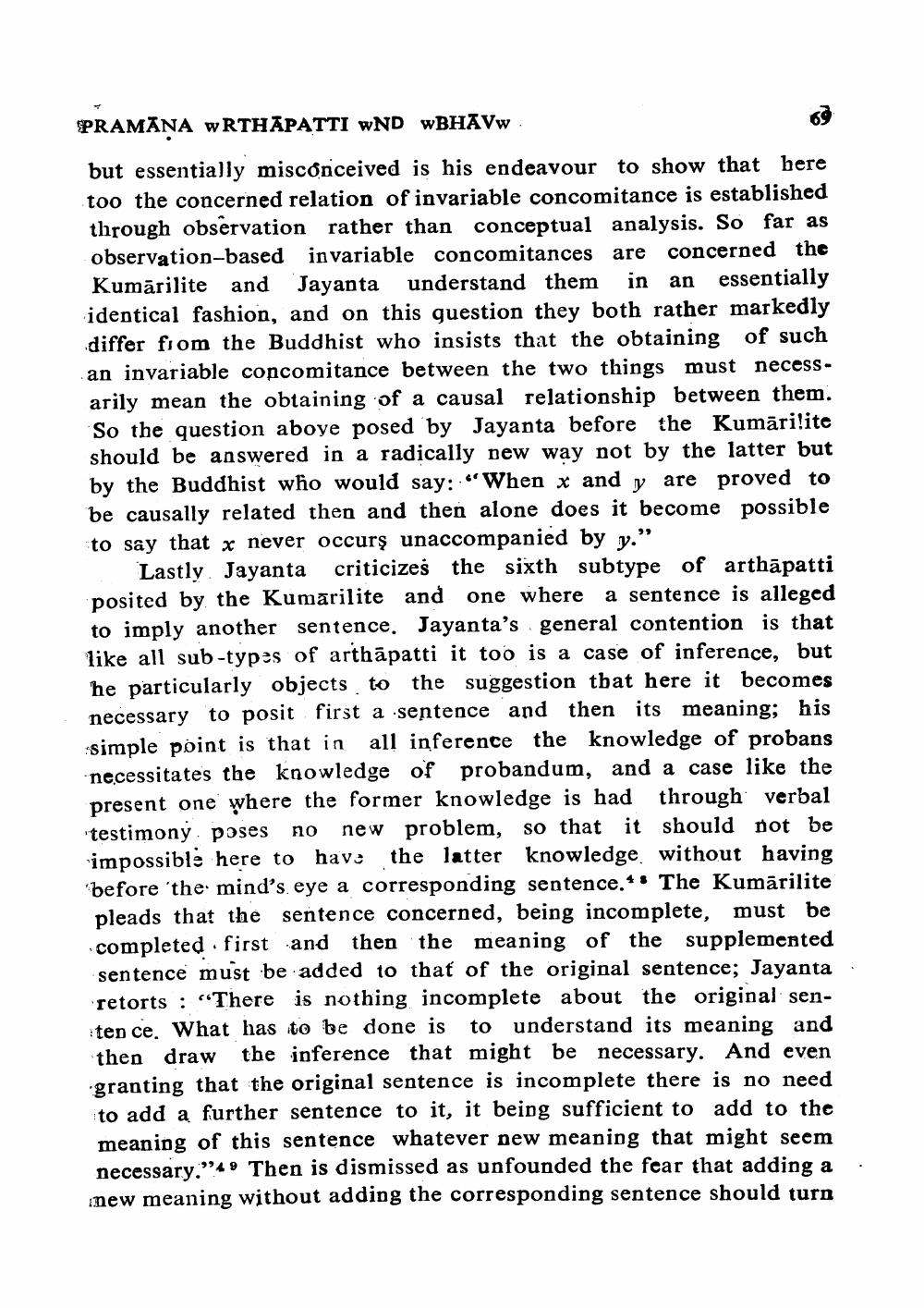________________
PRAMĀNA WRTHĀPATTI WND WBHAVw but essentially misconceived is his endeavour to show that here too the concerned relation of invariable concomitance is established through observation rather than conceptual analysis. So far as observation-based in variable concomitances are concerned the Kumārilite and Jayanta understand them in an essentially identical fashion, and on this question they both rather markedly differ from the Buddhist who insists that the obtaining of such an invariable concomitance between the two things must necessarily mean the obtaining of a causal relationship between them. So the question aboye posed by Jayanta before the Kumāri!ite should be answered in a radically new way not by the latter but by the Buddhist who would say: “When x and y are proved to be causally related then and then alone does it become possible to say that x never occurş unaccompanied by y."
Lastly Jayanta criticizes the sixth subtype of arthāpatti posited by the Kumārilite and one where a sentence is alleged to imply another sentence. Jayanta's general contention is that like all sub-types of arthāpatti it too is a case of inference, but he particularly objects to the suggestion tbat here it becomes necessary to positfirst a sentence and then its meaning; his simple point is that in all inference the knowledge of probans necessitates the knowledge of probandum, and a case like the present one where the former knowledge is had through verbal testimony. poses no new problem, so that it should not be impossible here to have the latter knowledge without having before 'the mind's eye a corresponding sentence.*. The Kumārilite pleads that the sentence concerned, being incomplete, must be completed first and then the meaning of the supplemented sentence must be added to that of the original sentence; Jayanta retorts : “There is nothing, incomplete about the original senten ce. What has to be done is to understand its meaning and then draw the inference that might be necessary. And even granting that the original sentence is incomplete there is no need to add a further sentence to it, it being sufficient to add to the meaning of this sentence whatever new meaning that might seem necessary.”49 Then is dismissed as unfounded the fear that adding a . new meaning without adding the corresponding sentence should turn




